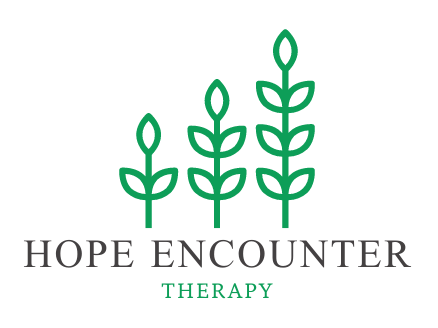Eye Movement Desensitization and Reprocessing (EMDR) therapy is well-known for effectively treating trauma. Yet its benefits for couples seeking to heal individually and together are often overlooked. By tackling personal trauma, enhancing communication, and mending emotional disconnection, EMDR can be a powerful resource for cultivating healthier and more connected relationships. In this guide, we will delve into how EMDR assists couples in navigating complex dynamics, promoting individual growth and greater relational harmony.
Understanding EMDR and Its Key Principles
EMDR is a therapeutic approach designed to alleviate distress linked to traumatic memories. It incorporates bilateral stimulation to help individuals process and reframe their painful experiences. This includes guided eye movements. The therapy focuses on how distressing memories are stored in the brain. Enabling individuals to resolve lingering emotional and psychological issues. While EMDR is primarily associated with treating post-traumatic stress disorder (PTSD), its benefits extend beyond individual trauma recovery. Thus, making it an invaluable tool for couples facing shared or personal challenges.
How Personal Trauma Affects Relationships
Unresolved trauma can profoundly affect how individuals interact with themselves and each other. When trauma remains unaddressed, it can result in emotional reactivity, avoidance, mistrust, or difficulty expressing vulnerability. These challenges often seep into romantic relationships, leading to conflict, withdrawal, and miscommunication.
For instance, one partner may struggle with attachment issues stemming from childhood neglect, while the other may carry unresolved trauma from past relationships. Without addressing these underlying wounds, misunderstandings, emotional barriers, and blame cycles can develop. EMDR provides a pathway to confront these issues, helping partners process and heal their trauma. Which ultimately reduces the emotional obstacles that hinder intimacy and connection.
EMDR and Individual Healing
In couples therapy, EMDR typically starts with individual sessions for each partner. The other partner attends the sessions and is active in providing support and, at times, bilateral stimulation through tapping for their partner. This initial focus allows individuals to delve into their specific traumas and explore how these experiences shape their behaviors and emotional responses within the relationship. Through this process, individuals can:
- Achieve a deeper understanding of their emotional patterns.
- Decrease reactivity to past wounds.
- Develop increased self-awareness and self-compassion.
For example, a partner who frequently reacts defensively during disagreements may learn that this reaction is rooted in a history of criticism or rejection. By using EMDR, they can process these past experiences, lessen the intensity of their defensive responses, and foster healthier communication.
Tackling Communication Issues with EMDR
Effective communication is essential for a healthy relationship, yet unresolved issues can turn into a significant challenge for couples. Misunderstandings, unmet needs, and emotional triggers can create a cycle of negative interactions that seem impossible to escape. EMDR can help break these cycles by:
- Identifying Triggers: Each partner explores specific experiences or beliefs that contribute to their communication difficulties. For instance, one partner may perceive a neutral statement as criticism due to prior experiences of being belittled.
- Processing Memories: By revisiting and reframing these memories, EMDR enables individuals to change their perceptions and alleviate the emotional weight associated with them.
- Creating New Responses: Once old patterns are processed, individuals can engage in conversations with renewed clarity and emotional regulation, facilitating better communication of their needs and feelings.
For couples, this process leads to fewer conflicts, heightened empathy, and a more cooperative problem-solving dynamic. Instead of reacting defensively or shutting down, partners can remain present and engaged, creating an atmosphere of respect and understanding.
Reconnecting Emotionally
Emotional disconnection is a common issue for couples, particularly when unresolved trauma or communication problems have affected the relationship. EMDR fosters emotional connection by encouraging vulnerability and trust. As each partner addresses their challenges, they become more open to emotional connection and support.
Couples therapy that incorporates EMDR can also include joint exercises that focus on shared experiences. For example, partners might navigate a particularly difficult moment in their relationship together, guided by a qualified therapist. This collective healing experience can:
- Strengthen their emotional bonds.
- Reinforce the feeling of being a team.
- Cultivate compassion and understanding for each other’s experiences.
By tackling the root causes of emotional disconnection, EMDR enables couples to build a more intimate and resilient relationship.
EMDR in Action: A Case Study
To highlight the profound impact of EMDR therapy in couples counseling, let’s explore the story of Sarah and James (names changed for privacy). Sarah carried the weight of childhood trauma that fueled her difficulty in trusting others. Meanwhile, James battled persistent feelings of inadequacy due to past failures. Their unresolved issues often led to intense arguments and prolonged emotional detachment.
Through individualized EMDR sessions, Sarah began processing memories of abandonment, which helped her recognize when her fears were triggered in the present. James focused on reframing negative self-beliefs and rebuilding his confidence in contributing positively to their relationship. As they progressed, their therapist integrated sessions designed to enhance communication and address shared challenges.
Over time, Sarah and James experienced a remarkable transformation in their relationship. They learned to express their needs openly, free from fear of judgment and approached conflicts with curiosity rather than blame. This newfound dynamic allowed them to support one another with the understanding and compassion they had both been yearning for. EMDR not only facilitated their individual healing but also deepened their connection as a couple.
The Role of the Therapist
The success of EMDR in couples therapy greatly depends on the expertise and experience of the therapist. A skilled EMDR therapist adeptly navigates the complexities of individual and relational dynamics, ensuring both partners receive support throughout the process. Key aspects include:
- Creating a Safe Environment: Establishing a nonjudgmental space where both partners feel secure expressing their thoughts and feelings.
- Tailoring Therapy: Customizing the therapeutic approach to address the unique needs of each partner.
- Guiding Joint Exercises: Leading couples through activities designed to foster healing and strengthen their bond.
- Selecting a therapist who specializes in both EMDR and couples therapy is crucial for achieving optimal results.
Practical Considerations for Couples Exploring EMDR
If you’re contemplating EMDR to heal your relationship, consider these practical tips:
- Seek a Qualified Therapist: Find a licensed professional with specialized training in EMDR and experience in couples therapy. We have several on staff here at Hope Encounter Therapy.
- Be Open to Individual Work: While the ultimate goal is to enhance your relationship, the journey often starts with individual sessions to address personal traumas and triggers.
- Commit to the Process: Understand that healing is a gradual process; patience is key as you and your partner navigate this journey together.
- Prioritize Self-Care: EMDR can evoke intense emotions, making it essential to focus on self-care and seek additional support if necessary.
Take the First Step Toward Healing and Connection with EMDR Therapy
EMDR offers couples a powerful way to heal. It helps address personal traumas, communication breakdowns, and emotional disconnects that can harm relationships. This therapy supports individual growth while encouraging vulnerability and deeper connection. As a result, it can transform how partners relate to themselves and each other. Whether you’re working through specific events or looking to strengthen your bond, EMDR provides the tools to build a healthier and more fulfilling partnership.
If you and your partner are ready to embark on this transformative journey, reach out to one of our qualified EMDR therapists at Hope Encounter Therapy and take the first step toward healing—both individually and as a couple.
Strengthen your Bond With EMDR Therapy in Raleigh, NC
Healing personal trauma can open the door to a stronger, more connected relationship with your partner. Through EMDR therapy in Raleigh, NC, you can process past pain and build the foundation for a healthier emotional bond. At Hope Encounter Therapy, we are here to guide you on this transformative path toward growth and connection. Follow these three simple steps to get started:
- Contact us for a free consultation.
- Meet with one of our skilled EMDR therapists.
- Start strengthening the bond with your partner!
Additional Services Offered at Hope Encounter Therapy
At Hope Encounter Therapy, we are committed to guiding individuals and couples toward healing and growth. While we specialize in EMDR Therapy to help couples strengthen their relationship and overcome personal traumas, we recognize that each person’s journey is different. Our team also offers Cognitive Processing Therapy (CPT), Somatic Experiencing, and Narrative Therapy to support your healing. Be sure to explore our blog for valuable insights, advice, and resources to aid you on your mental health journey.





